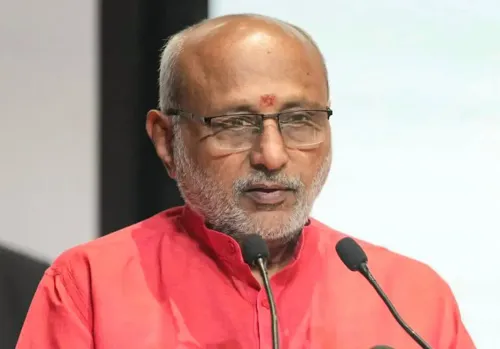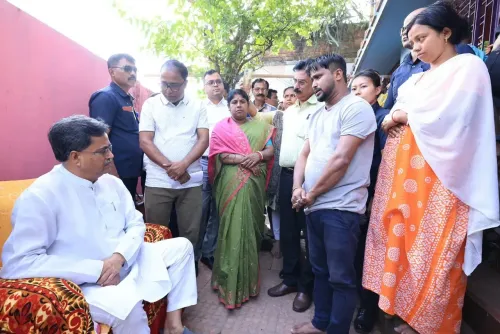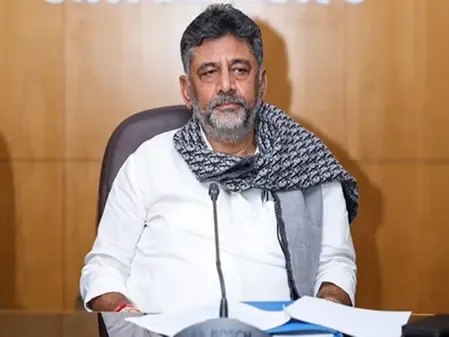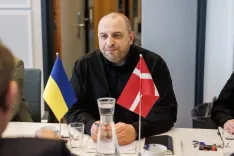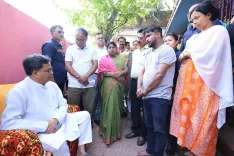Will Congress Apologise for Strangling the Constitution During the Emergency?
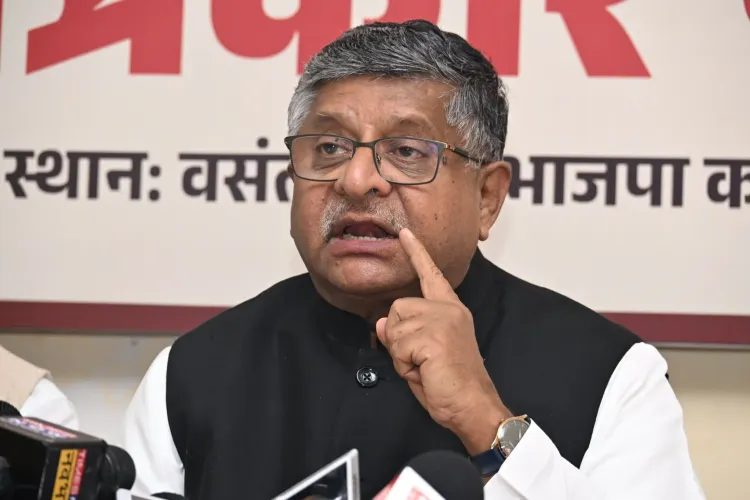
Synopsis
Key Takeaways
- The Emergency drastically altered India's democratic landscape.
- Mass arrests included many prominent opposition leaders.
- Forced sterilization policies affected millions.
- Media censorship restricted freedom of expression.
- Accountability for past actions remains a critical discussion point.
Mumbai, June 25 (NationPress) Former Union Minister and prominent Bharatiya Janata Party leader Ravi Shankar Prasad asserted on Wednesday that the Constitution was severely compromised during the Emergency through numerous amendments. He questioned, "Will the Congress leaders express remorse for transforming the nation into a prison and inflicting torture on Opposition activists, along with the imposition of forced sterilisation surgeries on innocent citizens?"
He made these remarks at a press conference held to commemorate the 50th anniversary of the Emergency.
“During the Emergency, approximately 150,000 people were detained nationwide. Leaders from major opposition parties, including the Jan Sangh and various socialist factions, faced imprisonment. Notably, Loknayak Jayaprakash Narayan and Morarji Desai were incarcerated in Haryana, with no permission granted for visits. Furthermore, Rashtriya Swayamsevak Sangh volunteers and Jan Sangh activists endured severe physical abuse while in custody,” he claimed.
Referring to the rampant injustices during the Emergency, Prasad highlighted that out of 253 journalists targeted, 110 were taken into custody under the Maintenance of Internal Security Act, another 110 under the Protection of Information Act, and 33 faced charges under various serious offenses.
He noted that several senior journalists were also jailed, while the accreditation of 52 foreign journalists was revoked. Renowned journalist Mark Tully was among 29 foreign reporters banned from entering India. Additionally, pre-censorship was implemented on newspapers during this period.
“Government officials were assigned sterilisation targets, resulting in 6 million forced sterilizations, with some individuals sterilised even without being married,” he alleged.
Prasad concluded by stating that Congress leaders have yet to issue any apology for these grave atrocities.

